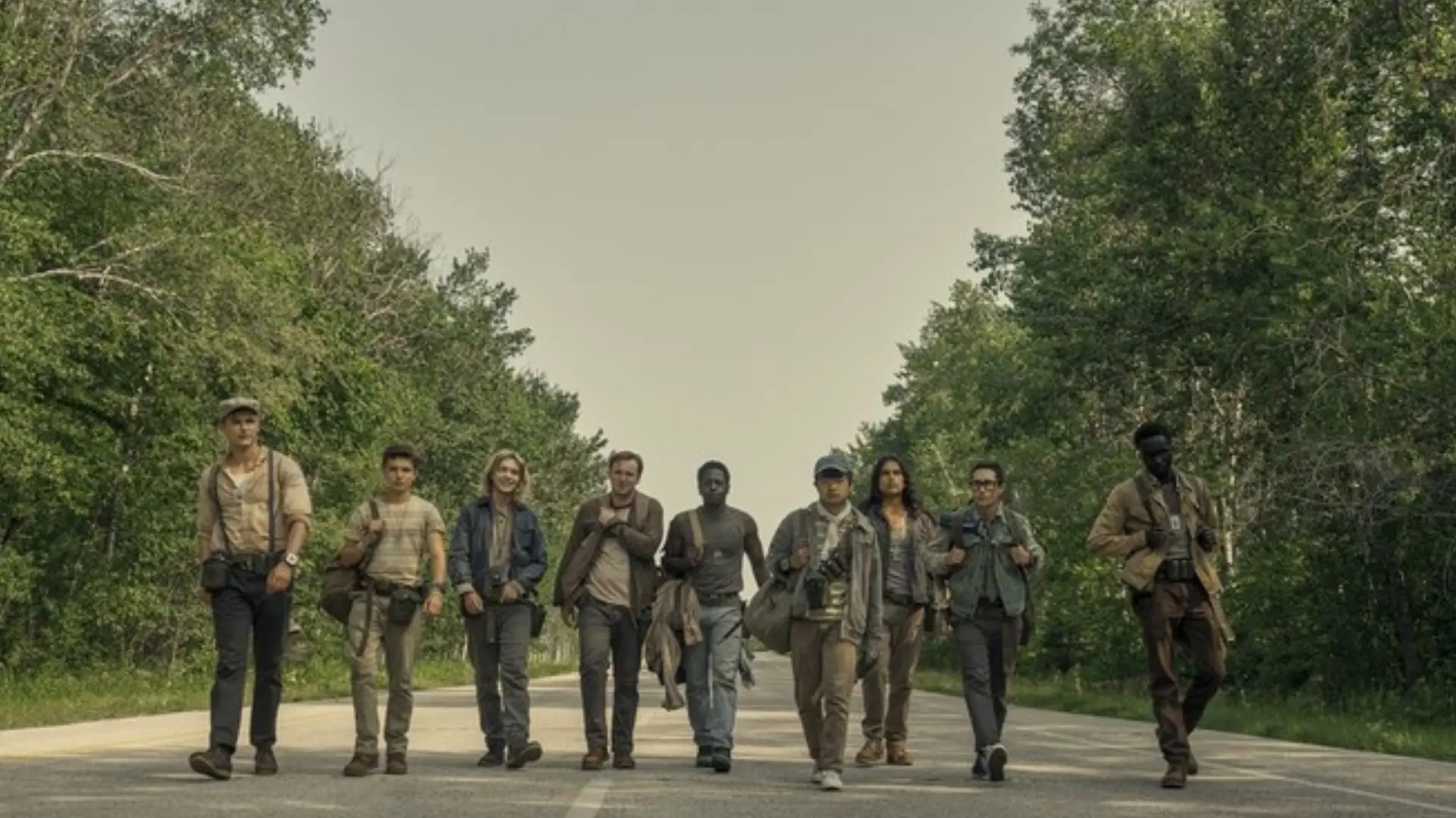The Long Walk ending explained: Why does McVries continue walking after kiling the Major?
-
 The Long Walk © Lionsgate Movies
The Long Walk © Lionsgate MoviesThe Long Walk is a 2025 dystopian survival thriller directed by Francis Lawrence, based on Stephen King's 1979 novel under his pseudonym Richard Bachman. The film stars Cooper Hoffman as Ray Garraty and David Jonsson as Peter McVries.
Released on September 12, 2025, by Lionsgate, the movie follows a brutal contest where 100 boys are forced to walk endlessly with the threat of death at every misstep.
The winner gets a lot of money and the ability to grant one wish. Ray Garraty and Peter McVries become close friends as the movie goes on, but in the end, McVries is the only one left standing.
After Garraty gives up his life for McVries at the end of The Long Walk, McVries kills the Major, as Garraty wanted, and keeps walking into the unknown.
The end of The Long Walk makes people wonder what McVries' motives were and what his last act meant. The movie's message is hard to understand, but it is very philosophical.
It talks about sacrifice, revenge, and the fight against oppressive forces that never ends.
Disclaimer: The following article contains spoilers from The Long Walk.
What happens after McVries kills the Major?
The last scenes of The Long Walk have a lasting effect. Ray Garraty gives up his life, and McVries wins, but not in the usual way of winning. Mark Hamill plays the Major, who is the strict leader of the deadly walk. He stands for the unfair system that the boys are stuck in.
McVries, who is heartbroken over the death of his friend, finally does what Garraty wants and kills the Major. He asks a nearby soldier for his carbine, and after a tense moment, he shoots the Major.
But what happens next is even more important. McVries doesn't stop or run away; instead, he just turns around and keeps walking down the road, this time by himself. His actions show that he has won a small battle and a bigger fight is waiting.
McVries seems to reject the idea that one victory, like the Major's death, can end the system of oppression by continuing his walk. His walk into the night represents the ongoing fight against tyranny.
Why does McVries continue walking after killing the Major?
After shooting the Major, McVries has a big decision to make: he can either stop, leave the contest behind, or keep going. The movie shows that real freedom, resistance, and change don't happen all at once.
The uncertainty of his last moments shows that McVries has killed the Major, who is a symbol of oppression, but his walk is far from over.
What drives McVries to kill the Major?
McVries' choice to kill the Major is one of the philosophical events in The Long Walk. Throughout the movie, McVries is shown as someone who believes in survival and resistance, but he also knows that revenge can be very expensive.
Earlier, McVries tries to get Ray Garraty to see what revenge costs. McVries tells Garraty to choose love over revenge and not to let his desire for revenge take over his life.
But after Garraty dies, McVries' point of view changes. McVries kills the Major because he lost his best friend and the walk made him feel bad. This is what Garraty wanted him to do.
McVries gets revenge and fights back against the oppressive system, which is represented by the Major. But by doing this, McVries becomes part of the cycle of violence that he was trying to avoid.
What does McVries' final walk represent?
McVries' final walk into the night is quite significant. The movie gives McVries a moment of power and control after he kills the Major, but it doesn't say what will happen to him next.
This walk is unclear because the dark figure that had pushed Garraty earlier is not there. Certain individuals might think of it as McVries walking toward his death, a last chance to get away from the trauma and horror of the walk.
Others might see it as a symbolic continuation of the fight, meaning that the battle against unfair systems is never really over and must go on. In the end, McVries' walk is a symbol of the fight for freedom that goes on even though it hurts.
The Long Walk is available to watch in theaters.
TOPICS: The Long Walk